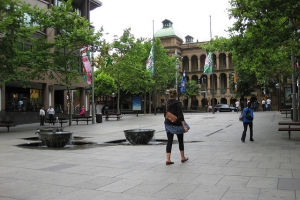Support migrant centric journalism today and donate

Canberra, the national capital of Australia, is experiencing a running shortfall of skilled workers in health care, trades, construction and the sciences, and the problem is expected to worsen before it improves.
The general population is aging and job vacancies are increasing as business develops. The local government is trying to remedy the employment shortages by attracting the unemployed and women back into the workforce, and immigration policies have been put in place aimed to attract skilled workers from overseas.
Global competition to recruit skilled staff is slowing the flow of immigrants to Australia, and skilled workers that do immigrate prefer to move to larger towns such as Sydney or Melbourne. Smaller towns and territories are struggling to attract migrant workers.
The current international skills shortage means pickings are no longer easy or cheap. Not even America, long the "No 1" destination of migrants everywhere, can assume it will continue to attract the worlds best and brightest.
In reaction, Canberra launched an advertising campaign highlighting the city's qualities. The campaign is aiming to attract local and foreign skilled workers from the outer-suburbs of Sydney.
Some Canberrans, are mindful of the city's infrastructure difficulties and are anxious that the town not lose its character, will see little need to attract more people here.
However, Canberrra's evolution from a purely administrative town to economically diversified city rests heavily on the ability of businesses, particularly its growing IT sector, to attract more skilled workers.
The task of ensuring that such people are available falls mainly to the Federal Government. The government has a variety of immigration policies in place, as well as a significant input into training. Until those policies deliver results, competition between the states and territories in Australia for skilled workers will probably intensify.





















